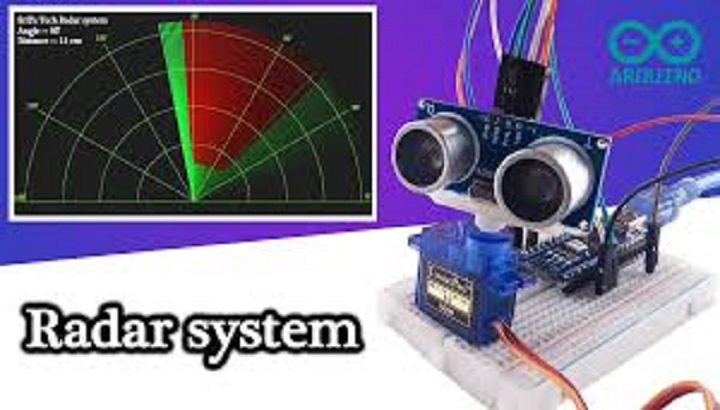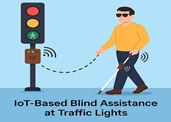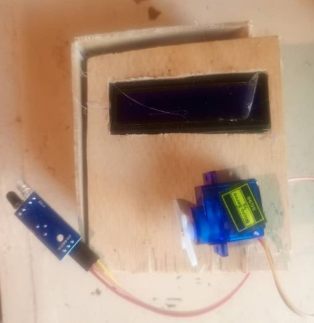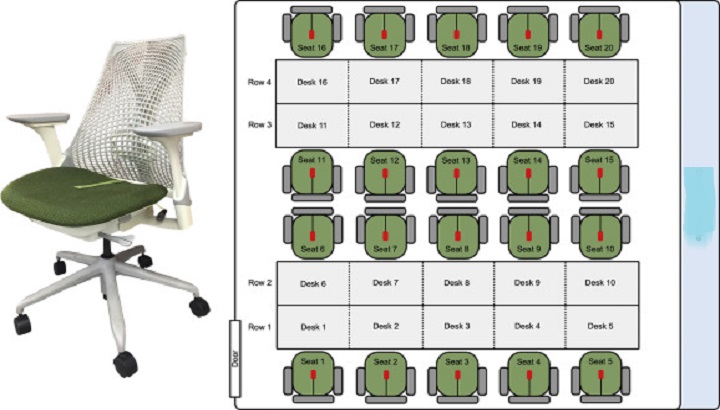Project Categories
Browse by type
-
IoT Projects
Arduino, ESP32, Sensors
-
Embedded Systems
Microcontrollers, Circuits
-
Web Applications
PHP, Laravel, React
-
Mobile Applications
Android, iOS, Flutter
-
AI & Machine Learning
Neural Networks, Deep Learning
Quick Links
Visit STS Shop
All Components In Stock
Arduino, Raspberry Pi, ESP32, Sensors, Motors & More!
Browse ComponentsArduino-Powered Proximity Sensing Radar
Need Components for This Project?
SoftTech Supply (STS) stocks all electronic components you need: Arduino boards, Raspberry Pi, ESP32, sensors, motors, displays, breadboards, and more.

Components and Functions: Arduino Microcontroller: Serves as the central control unit for processing data from the ultrasonic sensor and controlling the output devices. Ultrasonic Sensor: Measures the distance to objects by emitting ultrasonic waves and detecting the reflected signals. Servo Motor: Rotates the ultrasonic sensor to scan the surrounding area, creating a radar-like sweeping effect. LCD Display: Provides a visual interface to display distance readings and object positions. LED: Lights up to indicate the presence of an object within a critical range. Buzzer: Emits a sound to alert when an object is detected within a predefined proximity. Jumpers: Used to connect the components to the Arduino board for communication and power supply.
Operation: The ultrasonic sensor, mounted on the servo motor, rotates to cover a 180-degree area. As it sweeps, it continuously measures distances to nearby objects. The Arduino processes these measurements to determine if an object is within a critical range. If an object is detected, the Arduino triggers the LED and buzzer to provide immediate feedback. The distance and position of the object are displayed on the LCD screen for real-time monitoring.
Applications: This radar system can be used for various applications, including proximity alert systems, obstacle detection in robotics, and basic surveillance systems. It provides a foundation for understanding radar technology and can be expanded with additional features for more complex tasks.
In summary, this project integrates multiple components to create a functional radar system, demonstrating the principles of distance measurement, data processing, and output control using Arduino.
Ready to Build This Project?
STS Full Project Support
What We Provide:
- • All electronic components in stock
- • Step-by-step implementation guidance
- • Circuit design and wiring diagrams
- • Source code and programming support
- • Debugging and troubleshooting help
Why Choose STS:
- • Quality components at competitive prices
- • Fast delivery in Kigali and across Rwanda
- • Expert technical consultation
- • Complete documentation provided
- • Post-project support available
More Project Ideas from STS
Smart Fertilizer and Profitability Advisor
Our project, Smart Fertilizer & Profitability Advisor (SFPA), is an IoT- and AI-driven decision support system that optimizes both soil nutrition and farm profitability. Building on real-time soil sensing (pH, moisture, nitrogen, phosphorus, potassium, calcium,...
IoT-Based Blind Assistance at Traffic Lights Using Smart Stick Communication
This project is designed to improve the mobility and safety of visually impaired pedestrians at road intersections using IoT technology. The system comprises two interconnected devices: one installed at the traffic light and another integrated into a smart...
IoT-Based Pill Reminder and Dispenser System for Elderly Patients
This project presents an innovative solution aimed at addressing the medication...
Top 10 Innovative IoT & Embedded Systems Project Ideas
These 8 projects focus on IoT, automation, and smart technology to solve real-world challenges. They cover areas like smart agriculture, where automated irrigation improves farming efficiency, and water management, which optimizes distribution using SCADA systems....
Chair Occupancy and Usage Tracker for Sports Venues
The Chair Occupancy and Usage Tracker is an innovative system designed specifically for sports venues to enhance crowd management, optimize seating arrangements, and improve overall visitor experience. By leveraging IoT technology and advanced sensor networks, this system provides real-time data...
About This Project at SoftTech Supply
This Arduino-Powered Proximity Sensing Radar project can be implemented using components available at SoftTech Supply (STS) in Kigali, Rwanda. Whether you need Arduino boards, Raspberry Pi, ESP32, ESP8266, sensors, microcontrollers, or any other electronic components, we have everything in stock. STS provides complete project support including component selection, circuit design, programming assistance, and troubleshooting. Our team can help you implement this project from start to finish. Visit our electronics shop or contact us for personalized consultation. We serve students, hobbyists, and professionals across Rwanda with quality components and expert technical support.




